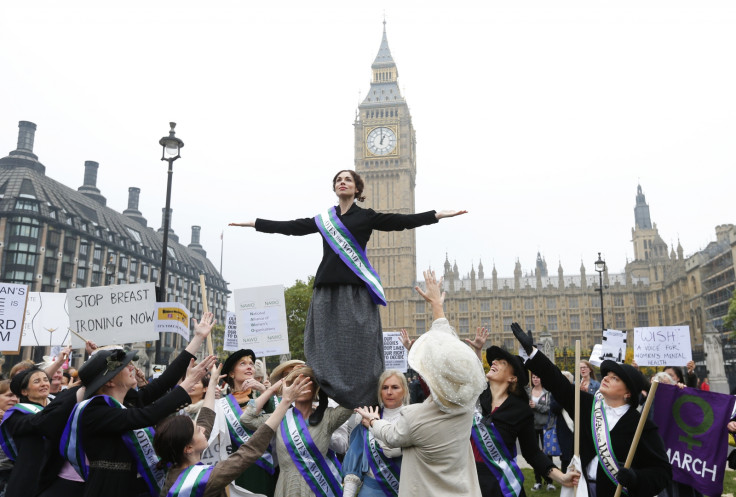Campaigners call for pardoning of UK suffragettes on 100th anniversary of women's right to vote
The campaign to pardon suffragettes has received the backing of Conservative politicians.

On the 100th anniversary of women's suffrage in the UK, campaigners are calling for the pardoning of women who were jailed while fighting for the right to vote.
More than 1,000 women were arrested and many were imprisoned as they fought for equality. Now, a 100 years after women gained the right to vote, the Fawcett Society, relatives of the suffragettes and senior Tory MPs are calling on Home Secretary Amber Rudd to overturn their convictions.
"Suffragette activism was for a noble cause and many of them became political prisoners," said Sam Smethers, the chief executive of the Fawcett Society. "It would be a fitting tribute to pardon them now."
The campaign to pardon the suffragettes has received the backing of the leader of the Scottish Conservatives Ruth Davidson.
"Voting was a value judgement, not an intrinsic right. That inequality is one of the reasons why I support calls by family members to offer a posthumous pardon to those suffragettes charged with righting that wrong," Davidson told the Daily Telegraph.
The great-great granddaughter of suffragette Alice Hawkins, Kate Barratt, said: "The suffragettes should be pardoned. They did engage in criminal acts, but the fact is that they were not being listened to through the proper channels."
Barratt continued: "It just shows how desperate the situation was at the time. And desperate times call for desperate measures."
The 1918 Representation of the People Act gave women the vote, but only to those over the age of 30 who owned land or a home. Equal rights were not extended to all women until 10 years later in 1928.
The 100th anniversary of women's right to vote comes as concerns continue that there is more to do before female employees are treated equally. Prime Minister Theresa May is set to mark the centenary by thanking the brave women who fought for equal rights and will deliver a speech in Manchester.
May will say: "Those who fought to establish their right—my right, every woman's right—to vote in elections, to stand for office and to take their full and rightful place in public life did so in the face of fierce opposition.
"They persevered in spite of all danger and discouragement because they knew their cause was right."






















